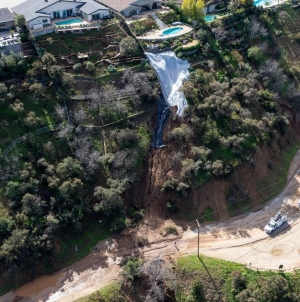-
Risk of a Wider Middle East War Threatens a ‘Fragile’ World Economy - November 2, 2023
-
A portion of Mulholland Drive, damaged by mudslides in winter storms, reopens - May 26, 2024
-
‘Maybe You Don’t Want to Win’ - May 26, 2024
-
Donald Trump Putting Law Enforcement in Danger: Attorney - May 25, 2024
-
Avoid the waters of these 5 L.A. County beaches this holiday weekend, public health officials say - May 25, 2024
-
Bawdy Comedy ‘Anora’ Wins Palme d’Or at Cannes Film Festival - May 25, 2024
-
Map Shows Heat Wave Zone Spread Into Five New States - May 25, 2024
-
Azusa police arrest suspected slingshot-wielding vandal - May 25, 2024
-
Donald Trump Hammers Judge Ahead of Jury Instructions - May 25, 2024
-
Sometimes U.S. and U.K. Politics Seem in Lock Step. Not This Year. - May 25, 2024
Risk of a Wider Middle East War Threatens a ‘Fragile’ World Economy
“All of these things are happening all at the same time,” Mr. Gill said. “We are in one of the most fragile junctures for the world economy.”
Mr. Gill’s assessment echoes those of other analysts. Jamie Dimon, the chief executive of JPMorgan Chase, said last month that “this may be the most dangerous time the world has seen in decades,” and described the conflict in Gaza as “the highest and most important thing for the Western world.”
The recent economic troubles have been fueled by deepening geopolitical conflicts that span continents. Tensions between the United States and China over technology transfers and security only complicate efforts to work together on other problems like climate change, debt relief or violent regional conflicts.
The overriding political preoccupations also mean that traditional monetary and fiscal tools like adjusting interest rates or government spending may be less effective.
The brutal fighting between Israel and Hamas has already taken the lives of thousands of civilians and inflicted wrenching misery on both sides. If the conflict stays contained, though, the ripple effects on the world economy are likely to remain limited, most analysts agree.
Jerome H. Powell, the Federal Reserve chair, said on Wednesday that “it isn’t clear at this point that the conflict in the Middle East is on track to have significant economic effects” on the United States, but he added, “That doesn’t mean it isn’t incredibly important.”
Mideast oil producers do not dominate the market the way they did in the 1970s, when Arab nations drastically cut production and imposed an embargo on the United States and some other countries after a coalition led by Egypt and Syria attacked Israel.
At the moment, the United States is the world’s largest oil producer, and alternative and renewable energy sources make up a bit more of the world’s energy mix.
“It’s a highly volatile, uncertain, scary situation,” said Jason Bordoff, director of the Center on Global Energy Policy at Columbia University. But there is “a recognition among most of the parties, the U.S., Europe, Iran, other gulf countries,” he continued, referring to the Persian Gulf, “that it’s in no one’s interest for this conflict to significantly expand beyond Israel and Gaza.”
Mr. Bordoff added that missteps, poor communication and misunderstandings, however, could push countries to escalate even if they didn’t want to.
And a significant and sustained drop in the global supply of oil — whatever the reasons — could simultaneously slow growth and inflame inflation, a cursed combination known as stagflation.
Source link
































